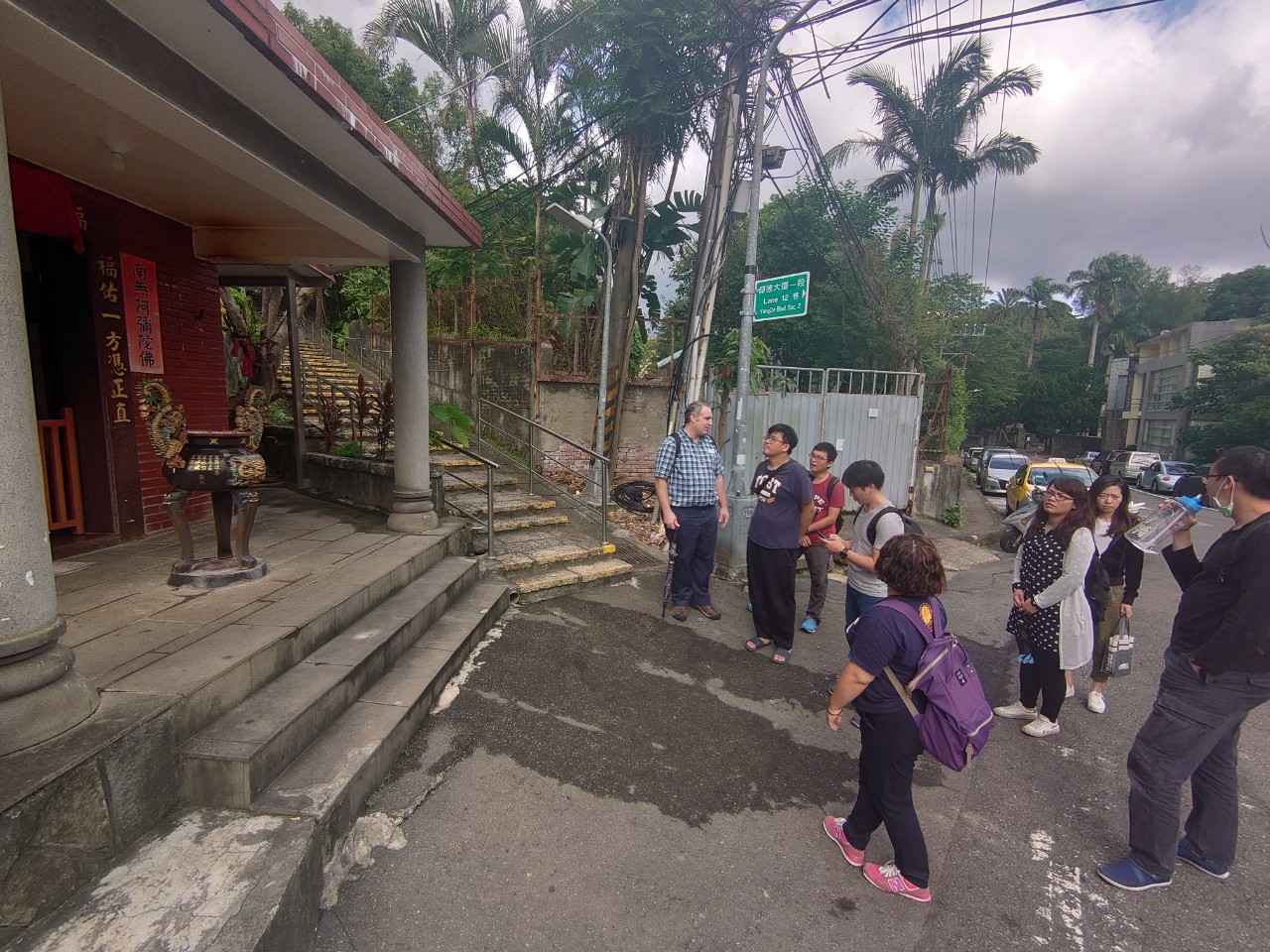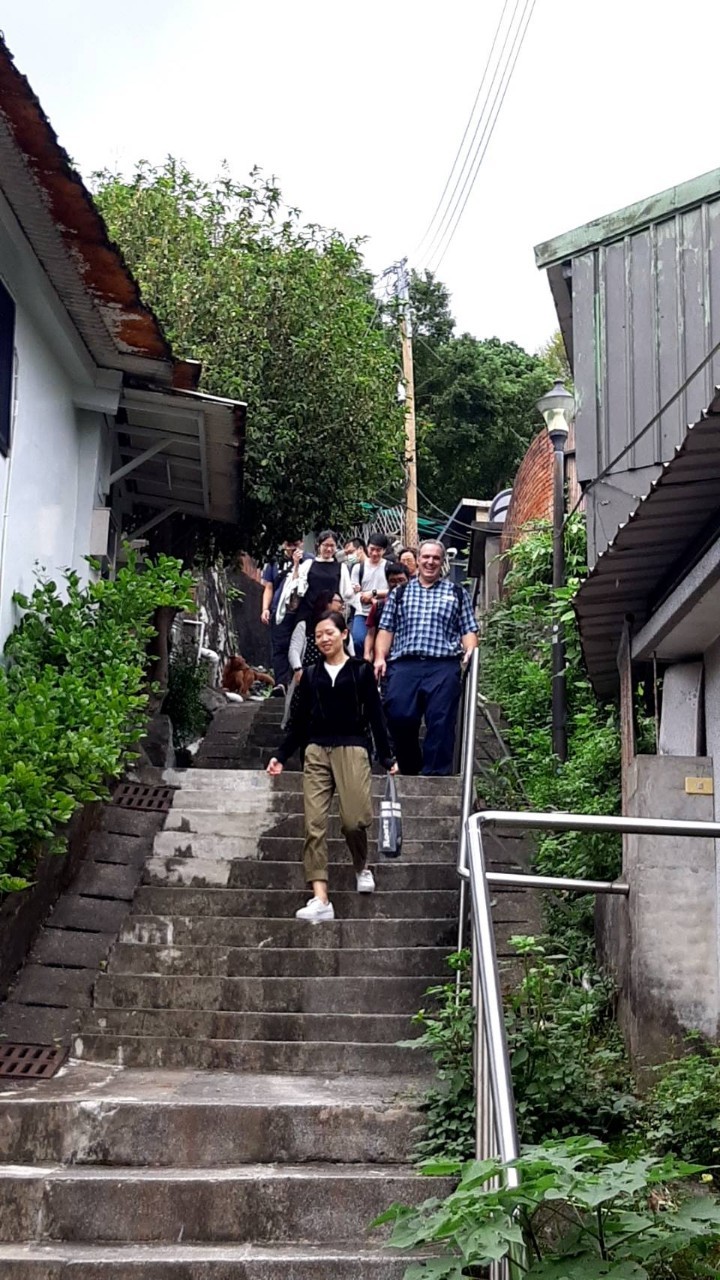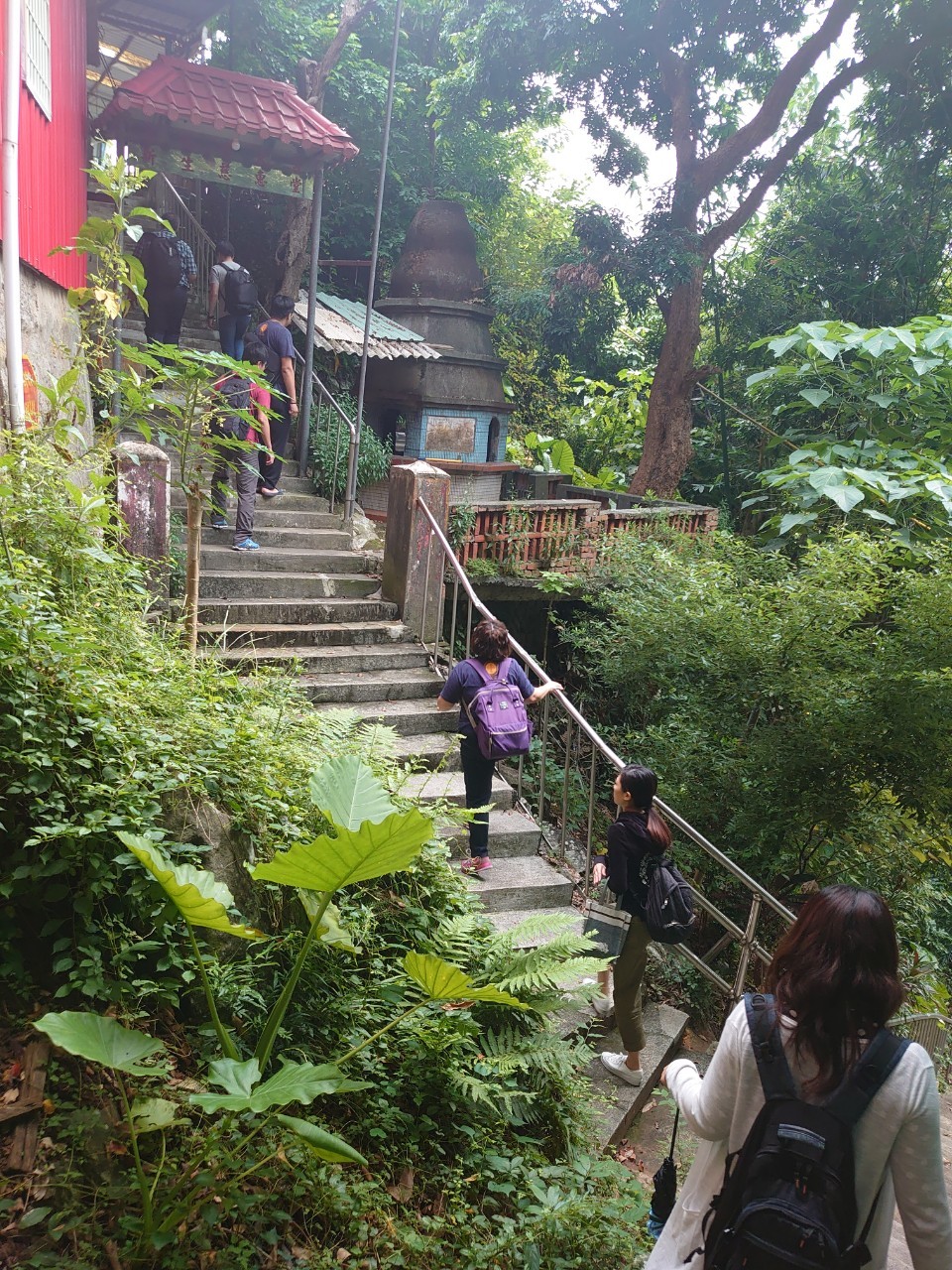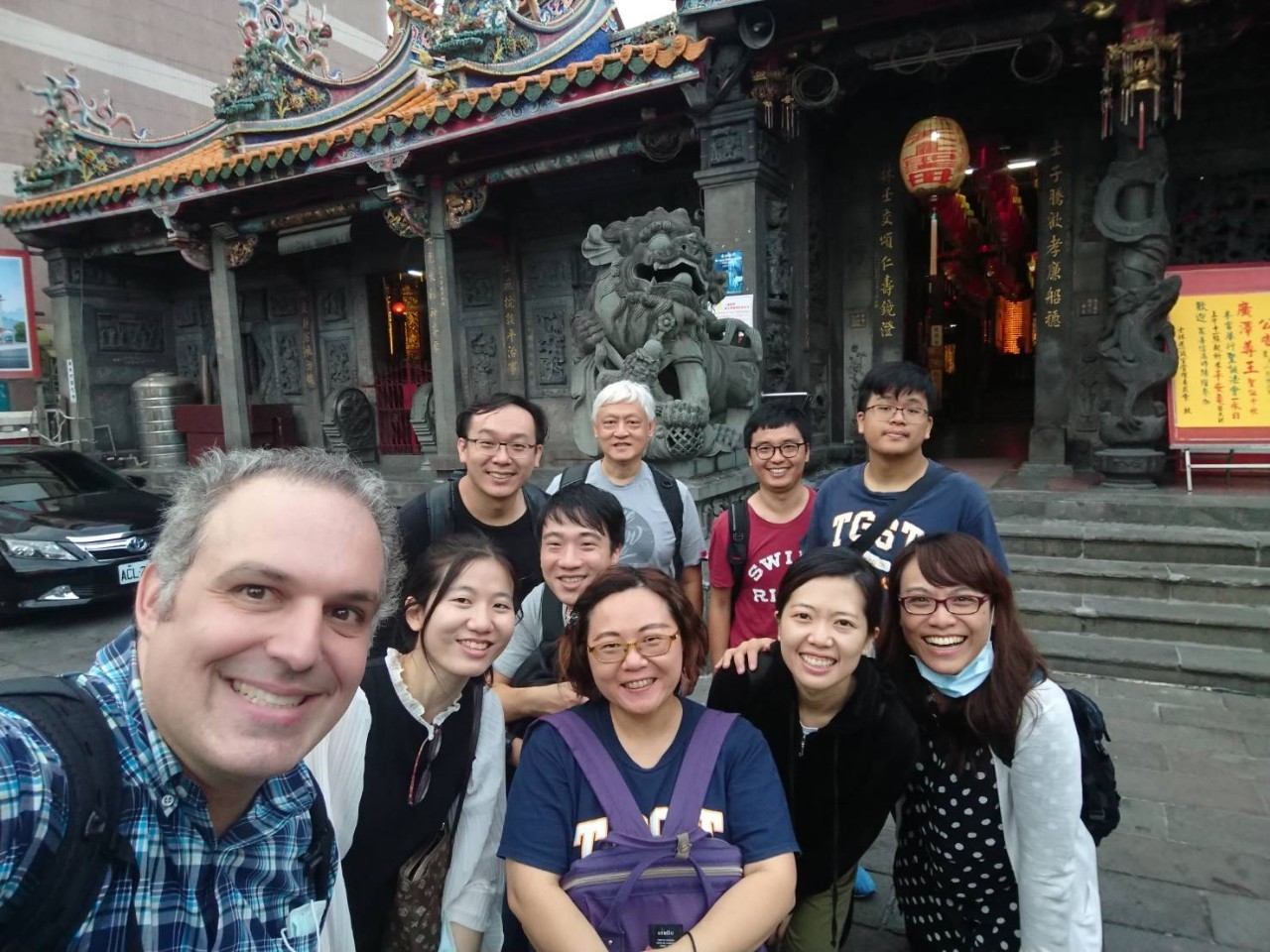A Letter from Jonathan and Emily Seitz, serving in Taiwan
October 2020
Write to Jonathan Seitz
Write to Emily Seitz
Individuals: Give online to E200383 for Jonathan and Emily Seitz’ sending and support
Congregations: Give to D507519 for Jonathan and Emily Seitz’ sending and support
Churches are asked to send donations through your congregation’s normal receiving site (this is usually your presbytery)
Subscribe to our co-worker letters
Dear friends,
This semester I’m teaching a class on Taiwanese religions. For many students, this is the only time they explore local religions. Most of our seminarians are second, third, or fourth generation Christians, but we always have students who became Christian recently, and we also have students married to non-Christians. Last week, we did a “temple walk,” where we left from campus and visited six nearby temples.
Next to my seminary, which is located on a mountain, are five hundred steps that lead down to the city. For this part of our walk, we first stopped at the “earth god” temple across the street, visited a Daoist/folk religionist temple, and walked by an “ancestral hall” (shizong qinhui or huiguan). These temples are all within a five-minute walk of our seminary. Each time I do this walk things work out differently. This time no one was at the earth temple, but Brother Hsu at the Daoist temple walked us around and introduced us to the history and purpose of the temple. He showed students small rooms used for meditation and introduced some of the more than 200 gods in the temple, showing us a chart of the relationship between the gods. Students asked questions, which he patiently answered. They were surprised when he walked us up to the main altar and let us look around. He himself said several times that all five religions have the same purpose (he probably meant Taiwan’s traditional three teachings—Buddhism, Daoism, Confucianism—plus two more recent arrivals, Islam, and Christianity). One of the benefits of teaching the class is that I can act partly as guest or religious tourist and students are a little braver in asking questions. For them, it’s a chance to see their own culture from different perspectives.
The next part of the trip we walked by the Latter Day Saints (LDS) church and went to a local Falungong protest site. Sometimes we visit the LDS church and talk to the young missionaries serving in Taiwan, but this year I didn’t have a connection. LDS missionaries famously wear white shirts and ties, or long dresses for women, and ride bikes, and they are often very effective at sharing their faith. Our main visit this time was the Falungong protest site. Falungong is the group known for its meditation sessions and conflict with the government of the People’s Republic of China (PRC) over religious persecution and (and sometimes, in the West, for the acrobatic shows they put on). Falungong is banned in mainland China, so protesters set up (fairly gruesome) posters about forced organ harvesting to share with visiting Chinese tourists near local attractions and hand out newspapers, books, and other materials. I explained to the Falungong volunteers there that we were from the Christian seminary on the mountain and that every year for a class we visit a number of local temples and religious groups. They shared a variety of stories. One woman talked about how her sister had been depressed before finding Falungong; she had several small children and Falungong is free to visitors; eventually her life changed and her sister (the volunteer) also joined. An older woman shared about how meditation had helped heal her. Both LDS and Falungong are sometimes called “new religious movements” by sociologists of religion. In Taiwan, there are also other movements like this (for example Yiguandao, Jehovah’s Witness, and others).
We ended with the large Mazu temple in the Shilin night market. Mazu is a popular, south Chinese female god who protects sailors. Although the area we walked in was inland, rivers and canals have extended to the area and Mazu has been a major deity in the area for centuries. This time we talked to one of the leaders of the church, who was also welcoming a group from another Mazu temple from the east coast.As you read this, perhaps you are experiencing some of the same questions my students had. Why are there so many temples? What similarities or differences do they have? How, as Christians, should we interact with these ‘neighbors’? What does it mean to be a minority witness alongside these other teachings? Of course, discussing (and sometimes answering) these questions is the goal of the course. In the U.S., Christianity often has a privileged place. The question that many Taiwanese Christians ask upon meeting each other—what generation of Christian are you?—barely makes sense in U.S. culture where most of us have a host of Christian ancestors of varying degrees of church involvement. For students, this trip often shows our common human concerns: How do we handle adversity, illness or crisis? What does it mean to live a good life? How do we share our faith? What does it mean to be a good person? At the same time, it also raises uniquely Christian questions: How do we witness in a pluralistic world? What does it mean to love our neighbor? How do we relate to family members and friends of other faiths?
It’s a bit of a stereotype, but in Taiwan I often find seminary professors are trying to make sense of Western Christian traditions—for example the Reformation, modernism, the Enlightenment. On the other hand, for we who are not from Taiwan, we are often trying to make sense of local traditions. What makes Taiwanese Christianity Taiwanese? How is Taiwanese Christianity Christian?
Next week Emily is preaching on Jesus’s famous summary of the law in Matthew, that we are to love God and love our neighbor (Matthew 22:36-40). Part of the reason I am so grateful to be part of a global faith is that we answer this question in different ways. Love God. Love your neighbor. Amen.
Prayer Requests: Pray for seminary students as they live and serve in churches throughout Taiwan. Pray for Taiwan Seminary during its busy November. Pray that we will be good witnesses. Please also pray for PC(USA) World Mission during this challenging time, as those of us serving abroad have recently decreased by more than a quarter.
![]() You may freely reuse and distribute this article in its entirety for non-commercial purposes in any medium. Please include author attribution, photography credits, and a link to the original article. This work is licensed under a Creative Commons Attribution-NonCommercial-NoDeratives 4.0 International License.
You may freely reuse and distribute this article in its entirety for non-commercial purposes in any medium. Please include author attribution, photography credits, and a link to the original article. This work is licensed under a Creative Commons Attribution-NonCommercial-NoDeratives 4.0 International License.



